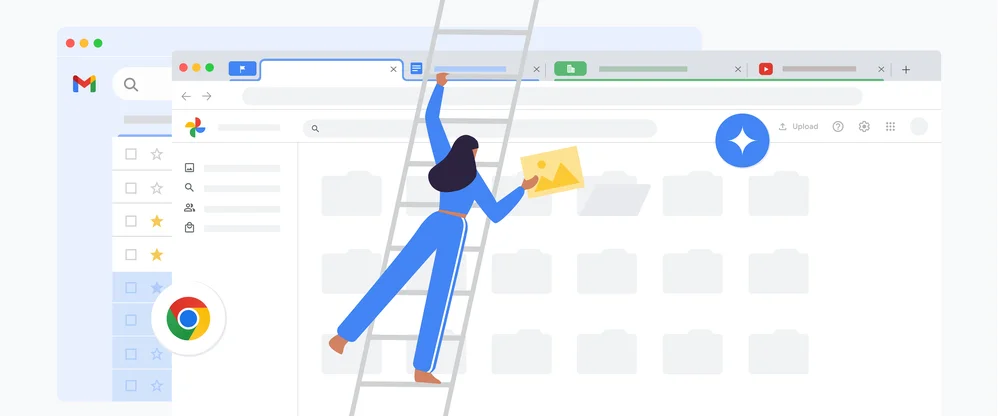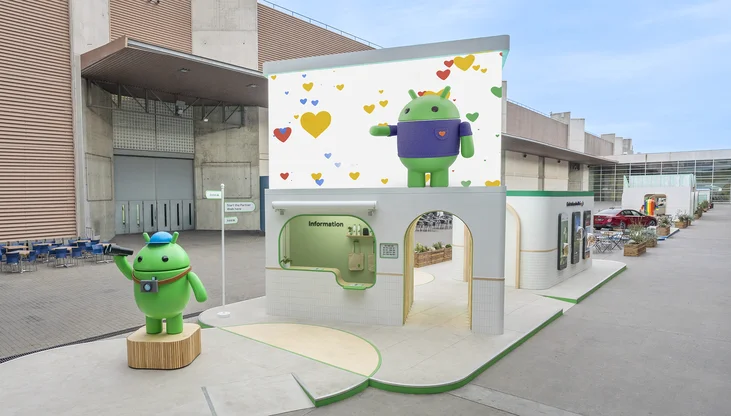Happy 10th birthday Chrome—the best is yet to come
We launched Google Chrome 10 years ago to give people a fast, simple and secure browser that they could count on. At the time, the web was becoming more capable, moving beyond displaying mostly static web pages to running interactive online experiences. However, the browsers at the time could be clunky and slow, and if one tab went down then the whole browser went down with it.
With Chrome, people were able to tap into the potential of the web. They could run complex web applications quickly, open multiple tabs without risking a crash and easily search for what they were looking for with a simple, unobtrusive interface. Many of these core attributes we described in our launch comic from 2008 still hold true today.

The first page of our launch comic, from 2008.
Ten years later, the internet is woven into the fabric of our daily lives. People form relationships, plan their futures, create art, earn a living, play games and explore new worlds—all through their browsers. This explosion of possibility on the web comes with a slew of new challenges. We want Chrome to keep pace with these changes—to make sure the web experience is seamless and secure on multiple form factors and supports new experiences that weren't possible 10 years ago.
For example, when we launched Chrome, smartphones were in their infancy, but their presence in our lives grew rapidly. So in 2012, we launched Chrome for Android, bringing the same fast, simple and secure experience to mobile devices. And our commitment to the user experience has continued too, as we work on making the web more secure for everyone and filter out disruptive ad experiences.
Today, in honor of Chrome’s 10th birthday, we’re launching several new features. Our newest update includes a refreshed design that lets you navigate the web faster, and a completely revamped password manager and updated autofill so you can get things done more easily and securely. And Chrome's search box (the "Omnibox") gives you more information directly as you type, saving you even more time.
As we look to the next 10 years of Chrome, we see an even better and more immersive browsing experience on the horizon. Already, we're working on integrating augmented reality (AR) into Chrome to bring information that you interact with across the web and put directly into your physical environment. Say you’re shopping for a couch online and want to see how it would look in your living room. With the power of AR and Chrome, you’d be able to place a virtual rendition of a couch in your living room, right from your smartphone. This is just one example of how more immersive experiences on Chrome could help you get things done faster.
In addition to making your browsing experience richer, we also want to make it smarter using AI. We’ve seen how AI can make other Google products more useful—from email that’s spam-free to a digital assistant you can speak to naturally. Chrome is no different. AI is already working for you in features like Google Translate in Chrome, which uses a state-of-the-art AI-based translation engine to bring all the world’s information to you in a language you can understand, right in your browser. We've also integrated machine learning to detect phishing and malware sites, and most recently began applying it to detect malicious extensions.
With a smarter Chrome, you will be able to do more than just look at a webpage. Imagine searching on Chrome for a singer you just heard, and having Chrome show you not just their bio, but also their upcoming concert near you and where to purchase tickets. With AI, Chrome will also better understand what you’re trying to get done, and help you do so faster. Vacation planning typically requires juggling multiple tabs and open documents. But as Chrome evolves to better understand what tasks you’re trying to get done, it can help manage all this complexity for you as you switch back and forth between hotel research and booking flights.
When we first launched Chrome, Sundar said: “We think of the browser as the window to the web.” A decade later, it’s still the tool people use to access all of the websites and applications that help them do what they want to do. As Chrome heads into the next 10 years, we want to expand that window—so you can see more and do more.








